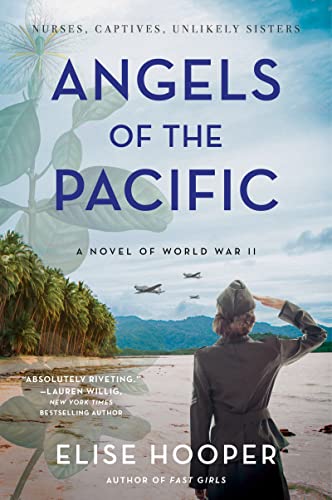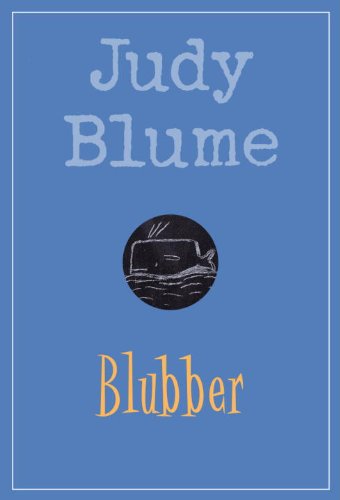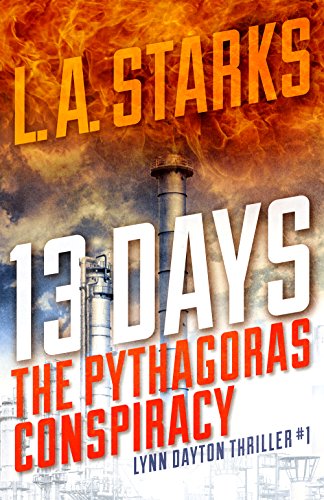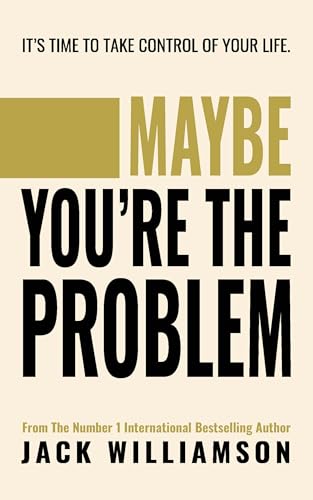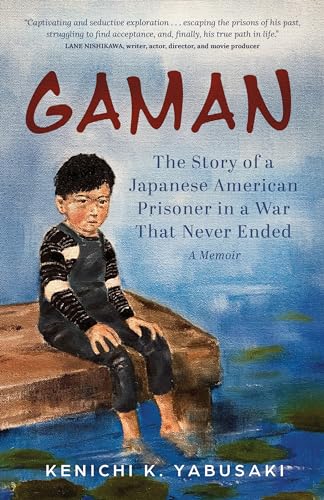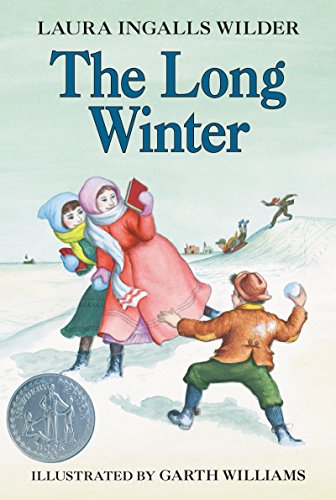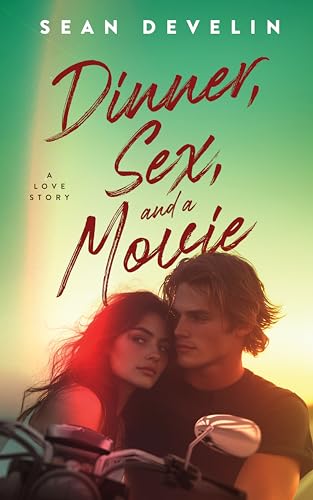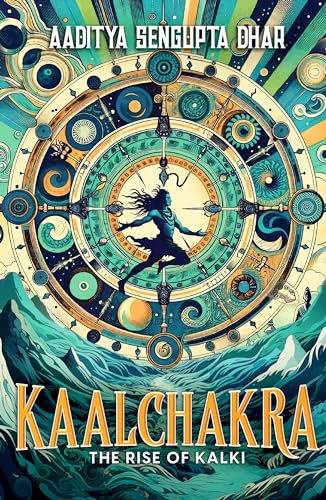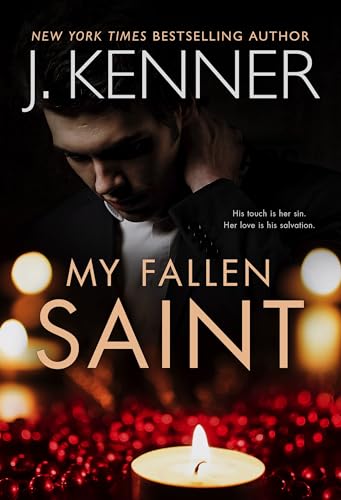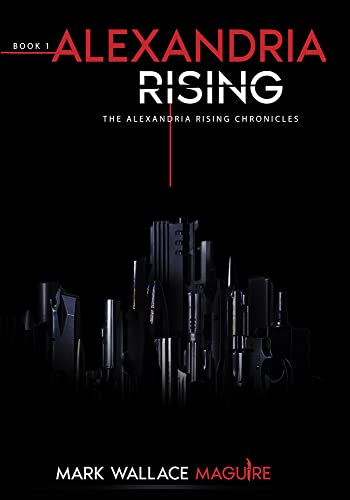Long before there was LA Noire,
there was LA Noir.
Al Roberts is up for parole, and Jimmy O’Brien, LA lawyer to the dregs of society, is picking up some walking-around money by handling the parole hearing.
In today’s gritty 11,000-word excerpt, witness the overwhelming evidence against Roberts. Then you’ll begin to learn what really happened in Jeff Sherratt’s LA Noir novel DETOUR TO MURDER as O’Brien goes up against the system to uncover a crime that reaches to the underground power players in the city.
by Jeff Sherratt
4.7 out of 5 stars 10 Reviews
Text-to-Speech and Lending: Enabled
In 1945, the semi-nude body of a woman is found in a two-bit Hollywood motel, a telephone cord wrapped around her throat; face frozen in a grimace of horror. The stolen car of a murdered motorist is parked in the motel parking lot, the owner lying broken and dead on the side of an Arizona highway.
Al Roberts confesses and has spent the last 29 years in prison. Now, nearly three decades after meekly confessing, the aged Roberts swears his innocence.
Jimmy O’Brien, defense attorney to the dregs of the criminal world, must find out why. Why did Roberts give a false confession? And why has he waited 29 years to tell the truth? O’Brien digs into the past, igniting a powder-keg that threatens to expose the long-held secrets behind Detour, the iconic Hollywood film documenting Roberts’ story. Secrets that could destroy the underground aristocracy that has held power in Los Angeles, city of broken dreams, for years.
Jimmy’s ordeal takes him from the bleakness of Roberts’ prison cell to the seedy streets of Hollywood, frantically searching to find out who took this DETOUR TO MURDER.
An Excerpt from
DETOUR
TO MURDER
Chapter One
1974
The California Institution for Men at Chino was forty miles from my office in Downey, almost an hour away. But today, a fender bender on the Pomona Freeway had traffic snarled, causing me to be late. Southern California was in the mist of one of the periodic droughts that plagued the basin since the beginning of time. Less than normal winter snowfall in the High Sierras to the north meant for a parched summer and autumn in the south. Couple that with a hot Santa Ana wind that blew in from the desert and about ten million normally compliant people turned into mad demons who drove their cars on the battlefield of L.A.’s freeways like raging predators seeking to devour their prey.
On days like today dire conservation warnings flooded the airways, restaurants quit serving a glass of water with your meal, and you could be arrested for watering your lawn. Don’t even think about washing your car, you’d be shot on sight.
I arrived ten minutes past my scheduled appointment. Damn. I glanced at my watch; should’ve left earlier. Why hadn’t Mabel, my office manager, given me the high sign while I was on the phone haggling with my car insurance guy? No use thinking about that now. And anyway my client, one Alexander Roberts, wasn’t going anywhere. He’d been convicted of homicide in 1945 and had been in prison for twenty-nine years now. What the hell, he’s been rotting in his cell at Chino all that time and I was fairly certain my tardiness was the least of his worries. Still, I hated being late all the time. Someone said that being late is sloppy; shows one had sloppy habits, could be true.
Maybe I should’ve shined my shoes this morning.
Back in ’45 Roberts had been sentenced to life with a minimum eligibility for parole set at thirty years. Inmates serving life automatically become eligible for parole hearings one year before their MEP date, and now Roberts counted on me to get him a fair shake at his hearing.
Because of the perennial manpower shortage in the public defender’s office, I’d been assigned by the Board of Parole Hearings-recommended by a friendly judge-to represent him before the panel. It wasn’t my legal brilliance and razor-sharp mind that got me the job, I must admit. I heard later that Judge Balford said to a board member, “Jimmy O’Brien is a lawyer of hopeless causes and he works cheap.” It pays to be noticed.
It’s true, state-appointed cases like this didn’t pay well, but they added a steady stream of revenue to the uneven flow generated by my regular work: defending poor saps unlucky enough to be caught up in the criminal justice system. With no discovery requests, interrogatories, and countless forms and red tape, parole hearings didn’t tie up a lot of my time. Scan the report, interview the prisoner, be on time at the hearing, and do my best for the convict-that was about it. Then I’d head back to the office to sit and stare at the walls until the next call came.
This morning, before I left Downey to drive to Chino, Rita Flores, my associate, and I had shared coffee and a couple of glazed. She’d brought the donuts to the office, placed the bag of sugary delights on my desk, and sat and crossed her legs, exposing a bit of thigh. My mind drifted from the legal matters at hand and focused on her. How could she remain so lissome and appealing when she had donuts with me here in the office almost every morning? Amazing.
Rita had been with me in our two-lawyer firm for almost two years now. She’d started as my secretary at the same time that I’d opened the office. Back then, she’d just graduated from law school, waiting for her bar results when she happened to walk by my storefront as I was hanging out my shingle. I took one look at the raven-haired Latina and hired her on the spot. When her bar results came in, I’d elevated her to associate status and prayed-with her new salary-that we’d have sufficient cash flow to stay in business.
But just because Rita was single, attractive, and smart, and I’d been divorced for years, didn’t mean there was any kind of office hanky-panky going on. She was young, twenty-seven, and at thirty-five I felt I was way too old for her. And anyway, she looked up to me as sort of a mentor; I guess you could call it that. How would it look, a mentor romancing his associate? But, I didn’t dwell on that thought, either. We had business to take care of.
We had spent almost an hour going over the Roberts case. According to the report supplied by the BPH, Al Roberts had been arrested and charged with Section 187, murder in the first. It seems that, back in 1945, he’d brutally strangled a woman. Her semi-nude body was found in a two-bit Hollywood motel room draped across a bed with a telephone cord twisted tightly around her neck. Her trachea had been crushed, her eyes bulged, and her face was frozen in a grimace of horror. There were traces of semen in her vagina, but there was no sign of rape, no bruising of the genital area. The physical evidence gathered at the scene was overwhelming. And it all pointed to the man who committed the crime: Al Roberts. But the jury never saw the mountain of evidence. There was no trial. He had confessed.
More bad news: the report also stated that he killed a man in cold blood a few days before he murdered the girl. The authorities surmised that the victim gave Roberts a lift when he’d been hitchhiking across the country en route from New York to Los Angeles. The man’s body was found off the side of a road somewhere on the outskirts of Yuma, Arizona. There was a deep gash on the side of the victim’s forehead, indicating foul play. The man had been dead for a few days when an Arizona Highway patrolman spotted the partially decomposed corpse lying behind a small outcropping of brush.
A warrant for Roberts’ arrest had been issued in 1945 by a Yuma County judge, but the Los Angeles DA charged him with the woman’s murder before he could be extradited to stand trial for the murder of the man who gave him a lift.
“Look at this, Jimmy.” Rita pointed to a notation in the report. “The police found the dead man’s Lincoln convertible parked in the lot at the same motel where the woman had been strangled.”
“Yeah,” I said. “And later, when they picked Roberts up on a vagrancy charge, he had on the dead man’s clothes. Christ, he even had Haskell’s wallet in his pocket.”
“A parole wouldn’t do him any good,” Rita said. “There must be a warrant outstanding in Arizona for murdering the guy who owned the car. If California turns him loose, they’ll snatch him and try him for first degree murder down there.”
“No statute of limitations on murder.”
“I know that.” Rita stood and turned and gave me a wink over her shoulder. “I’m a woman and maybe I’m not the hotshot, Jimmy O’Brien, but I’m a lawyer too, you know.” She moved smoothly to the door.
Rita adjourned to her office to meet with a client, a drunk named Geoff with a duce hanging over his head, and I set the report aside.
No use digging further into the technical details described in the appendix, I figured. The report supported their conclusions. I couldn’t use anything in it to mitigate his crimes. The guy killed two people in cold blood, and after spending almost thirty years locked up in a cage, it appeared that Roberts would still spend the rest of his days as a guest of the State. With what I had just read, the parole board would never cut him loose. Still, I was being paid to plead his case and I’d do the best I could for him.
I arrived at 14901 Central Avenue, a mile or so south of Chino’s downtown district, and turned onto a side road leading to the main gate. The penitentiary was huge, a few thousand acres surrounded by a double chain link fence with three feet of coiled razor wire topping it. Through the fence, I could see row after row of buildings. Looking deeper into the complex, I saw a smokestack spewing a steady stream of white vapor. Probably steam coming from the massive boilers that would be needed to keep this small city functioning.
The entrance to the administration building was outside the fence. I wheeled into the parking lot, walked along a short path and entered the structure. After signing in with the litigation coordinator on duty, I was told to wait until the guards brought Roberts over from general population to the visitor center.
While waiting, I jotted a few notes on a yellow tablet, questions I would ask Roberts. But I figured, after being locked up in such a cruel environment for so long he wouldn’t be forthcoming with the answers. To survive in prison, convicts had to grow tough and callous, tougher than they’d been on the streets, and over the years they all developed a belligerent attitude and a code of silence.
The hearing was scheduled for tomorrow, and even though there was practically no possibility of his release, if he had a shred of a chance at freedom, then I’d have to get him to show remorse and humility. But I knew any reverence, awe, or passion he once held would’ve slowly leached out of his pores and evaporated like so much sweat during his twenty-nine years in this hard place. With very little time available to thoroughly prep him on how to react to the board’s interrogation, or how to exhibit sorrow without showing hostility, I had to move fast. If Roberts were anything like other inmates I’d interviewed for past hearings, then he’d naturally resent members of a board passing judgment on him. He’d see them as establishment figures, well-off people who had advantages in life that he never did. As the hearing progressed, he’d fume inside and build up resentment. By the time they got around to asking him for a mea culpa he’d want to bash their heads in.
“O’Brien, the prisoner is now in the interview room. Follow me.”
I put the yellow pad in my briefcase and stood. The correctional officer, a sergeant, wore a CDC forest-green jumpsuit. The nametag over his right breast pocket identified him as J. Marsh. The patch on his sleeve had letters arching above the State seal, which read “California Department of Corrections.” He had a baton hanging from a ring on his John Brown belt, but no gun.
I stepped along with him as we left the waiting area and walked the length of a long hallway. We stopped at a door made of steel bars, and from a black leather pouch on his belt he pulled a long metal chain with a large brass key at the end of it.
Inserting the key and unlocking the door, he turned to me and said, “I saw you when you were out here a few months ago, O’Brien. Security has tightened since then. We lost one of our men. Happened three weeks ago. Stabbed with a jagged edged shank.” He paused a moment, then leaned into the door, pushing it open. “I’ll be staying in the room with you.”
“Fine by me, “I said. “Sorry to hear about the guard.”
“Happens.” He shook his head. “And to think they used to call this freak house an honor farm.” We entered a sallyport with another set of steel bars in front of us. When the door behind me shut with a decisive bang, Marsh called out to someone unseen, “Free man coming through.” We walked along a corridor to one of the rooms cut into it. Marsh opened the door, glanced inside, and nodded back at me. I followed him into the 15’x15′ cubicle. He moved to a corner and stood at parade rest.
A rectangular stainless steel table stood in the center, bolted to the cement floor. A man whom I presumed to be Roberts sat slumped in one of the four chairs pulled up to the table. He wore the standard blue denim prison garb and even though I knew from the report that he had turned sixty this year, he still had a full head of dark hair. His hands were folded on the table and shackled at the wrists. “You the lawyer?” he said, looking up at me.
I didn’t answer him right away, still thinking about how to handle the interview. Should I try the soft approach, plead with him to give me a reason, any excuse for why he’d killed those two people? Maybe get some contrition of sorts, anything I could offer the board.
Or should I shock him, pull no punches, and try to break him down? Get the hostility out in the open and let him rant at me, let the pent-up anger explode and vent like a pressure cooker with too much heat. Maybe set him up so that regardless of what the board members threw at him, he’d be able to take it.
I sat down, placed my briefcase on the table, and took out his file. I looked at him across the table. He could’ve been a big man at one time with a solid physique, but now sitting with his shoulders hunched he looked weak and venerable.
“Roberts, it says here you murdered two people. Killed them in cold blood. Murdered a woman with your bare hands.” I stared into his eyes. “What kind of animal are you?”
Chapter Two
I realized from the moment I looked into his cold, dark eyes that if there were any chance at all of getting through to him I’d have to work him over hard, not physically but verbally.
With a murder conviction staring the board in the face, not to mention the DA’s glaring statement alleging that Roberts had killed another guy in Arizona, I figured, in all probability, that the members of the board would keep him locked away until the next ice age. The hearing would be an exercise in futility.
But notes from the hearing along with the results would be added to his file. California law stated that lifers with indeterminate sentences were entitled to a parole hearing at least once every five years. If the board set him free, I doubted that Arizona would try him now. After thirty years no witnesses would be available. It would be a tough case to prosecute. And I didn’t want him to screw up his chance of freedom at the next hearing by being belligerent at this one.
I went to work on him, earning my fee. I stood and walked around the table, circling him like a predatory animal assessing its prey. “Tell me about the woman you murdered. Was she hot in bed?”
Roberts raised his head and turned so he could see me. “You’re sick.”
“Did you kiss her before you strangled her?” I snapped.
“I didn’t-“
“Didn’t what? Sleep with her, or kill her?”
“What are you handing me? You sound like a cop.”
“How about Haskell, the guy who picked you up on the road in Arizona? Did you kiss him, too? Kiss him with a tire iron, maybe?”
“I didn’t do a goddamn thing!”
If Roberts kept insisting on his innocence to the board, showing no remorse, and adamantly denying that he hadn’t cold-bloodedly murdered those two people back in 1945, we’d both get tossed out of the hearing on our cans.
“Why’d you kill the woman?”
Roberts remained silent.
“Hey, lover boy, I asked you a question.”
“Wasn’t worth an answer.”
“Did you strangle her when she wouldn’t give you any?”
“I only slept with her once. I was drunk-“
“Oh, so you did have sex with her. You admit that. Now admit that you killed her too.” Christ, the guy made love to her, then murdered her with his bare hands. We wouldn’t mention that fact to the board. “Maybe you were drunk at the time you crushed her windpipe. Was that how it went, Roberts?”
“Get off my back, asshole.”
“Hey, Roberts, did you sleep with her before or after you killed her?”
He raised his arms and pounded the table with his hands balled into fists. “Goddamn it, back off!” He bolted from his chair.
Marsh, the guard, moved fast and shoved Roberts back down. “You wanna call it a day, O’Brien?” he asked, glancing at me.
“No, not yet.” I looked at Roberts, who now had his head down on the table with his arms stretched out in front as far as they would go. I could almost feel the heat building inside him. But he fell silent, not responding at all. “Was she pretty, Roberts? Did she turn you on? I’ll bet she wanted nothing to do with you, so what the heck, you killed her. Isn’t that right, Roberts?”
He didn’t say a word. The silence in the concrete room grew deafening.
“I’m here to help you, Roberts. Goddamn it,” I said. “Talk to me!”
He stared at his shoes, shaking his head in voiceless anger.
“C’mon, man. You pleaded guilty to the woman’s murder back in ’45 when you were arrested,” I said. “Show some remorse, for chrissakes.”
“That’d be hard to do,” he whispered.
“What?”
“I said I can’t do that.”
“Why?” I asked.
“I didn’t kill her.”
“For chrissake, Roberts. It’s all here in black and white.” I thumbed the report, quickly reviewing a few details. Roberts’s first victim, the guy who gave him a lift, was named Charles Haskell, Jr. The woman Roberts had picked up on the road after killing Haskell and stealing his car had not been identified by the authorities. No one came forward to claim her body and after waiting the time prescribed by law she had been buried at the expense of the City. I slammed the report on the table. “Says here you killed them both. You’re lying to me, Roberts.”
“No!”
“Then why did you say you murdered the woman in the first place?”
I paused and he remained silent. We both knew the answer: the plea bargain. “It’s not smart to lie to your lawyer, Roberts. Are you that goddamn stupid? “
His face turned red, his breathing irregular, beads of sweat dotted his forehead. I felt at any moment he’d bust loose. Then after he got the anger out of his system, I’d do what I came here to do: show Roberts how he’d have to present himself at tomorrow’s hearing. The board wouldn’t tolerate his claims of innocence. That would blow the whole thing right out of the gate. He’d have to admit his guilt and he’d have to appear to be a man of humility with sorrow and remorse in his soul for what he had done all those years ago. He’d have to show them how, after twenty-nine years languishing in this “correctional” facility, he’d changed and had achieved a state bordering on veneration.
I pounded the table with my fist. “Why’d you confess if you’re so goddamn innocent?” I didn’t wait for an answer. “I’ll tell you why. You took the easy way out, Roberts. Couldn’t take the pressure. You copped a plea to the woman’s murder. They didn’t charge you with Haskell’s death, no sir. But they used his murder as a wedge, pressuring you to admit that you strangled the blonde.” I got up and paced the room. “Isn’t that right, Roberts?”
He kept quiet, but the veins on his neck pulsed and his jaw muscles tensed. His insides had to be burning as he continued to struggle to maintain control. Damn, I said to myself, let loose, Al. C’mon, man, let it out. Show some emotion.
I turned back to him. “The prosecutor played the old shell game, didn’t he, Roberts? Take your pick. The little pea under the walnut hull is a six by eight cell in San Quentin. Or, hey, maybe it’s a trip to Yuma. They have a nice little room down there filled with cyanide perfume just waiting for you.’ Is that what he said?”
He slowly shook his head.
I walked around behind him. “And you fell for it,” I said to his back. “You were a fool.”
He still didn’t respond, but I saw his fists tighten, the knuckles turning white. I was getting close. Any moment, he’d blow. And in anger, he’d admit to what he had done.
I darted to the table, leaned forward, and stabbed the report repeatedly with my finger. “It says here you strangled the girl with a telephone cord until she couldn’t breathe. Then you snapped her neck with your bare hands.”
“I wasn’t even there when she was killed,” he muttered.
“What about the guy, Haskell, you killed a couple days earlier?”
“I didn’t kill him either, understand?”
“Okay, you didn’t go to trial on that one. We’ll forget about it for a while. But tell me more about the dead girl. The girl you didn’t kill. The one you had sex with. The one who grated your nerves, the girl you were cooped up with all alone at that motel.”
“It wasn’t like that. Somewhere in the middle of the goddamn desert Haskell gave me a lift. After a while, he got tired and I drove. Then he died. He fell out of the passenger seat; hit his head on a rock. But I had to get to L.A. So, naturally, I took the car. I-“
“Then you, naturally, stole his clothes and money. Then you, naturally, picked up the girl on the road while driving the dead guy’s car the rest of the way to Los Angeles. Then you, naturally, killed her too.”
“No, goddamn it-I mean yes, I picked her up, but… She wanted money. I gave her everything, all the money I took from Haskell’s body, but she wanted more.”
“Strong motive.”
“After we had been in L.A. a few days I left the motel room, went to sell Haskell’s car, but without papers nobody would touch it. I went back, was gonna tell her. When I got there she was dead. But I couldn’t prove that I didn’t do it. My prints were all over the place. I’d been there with her for three days.”
“I’m not buying it, Roberts. You confessed? I’ll say it again. You’re a goddamn liar.”
He turned his head slowly. The look in his eyes told me I’d be a dead man if he wasn’t cuffed and Marsh wasn’t in the room.
“Don’t call me a liar! I’m not a goddamn liar.” He paused for a beat. “You hear me?” His words bounced off the walls, echoing in the small room.
Marsh walked over to him. “Keep your voice under control or this meeting is over,” he told Roberts, jabbing a finger in the prisoner’s chest. “Do you understand me?”
Roberts stared at Marsh, wide eyed. Then he looked at me again, despair on his face. I felt some sorrow, surely not for him. After all, he did kill two people. Still, nobody was on his side, then or now. I’d worked him over as hard as I could and he didn’t crack. Could there be a possibility that he’s telling the truth? No, and that issue had been decided long ago.
But the State said he had a right to parole. After all this time maybe he changed, became a different person. Maybe he wasn’t the same monster who’d walked in through those barbwire prison gates back in ’45.
“Why, Al? How’d you get in this mess if you’re innocent?”
“They were gonna kill me,” he said softly.
I pulled out a chair and sat next to him. “You wanna tell me about it?”
“The D.A. gave me a chance to stay alive and I took their deal. Nothing I could do.”
“Your lawyer went along with it? Advised you to take the deal, is that it?” I asked.
“A trial costs big dough.”
“And of course, you had no money.”
“After I was arrested my lawyer sold my story to some guy, got five hundred bucks. They made a movie, wasn’t much, and they mostly got it wrong. But anyway, once the five hundred was used up my lawyer wanted to cut and run.”
“What was the name of the movie?”
“Detour.”
“Never heard of it,” I said. “Who’s in it?”
“Nobody.”
I got up and walked around the room again.
“Do you want out of here, or not?” I asked, staring at the back of Roberts’s lowered head.
“It’s not fair.”
“You know how it is with the law, Roberts. What do you expect, put a quarter in the slot and out pops justice?”
“The parole board’s gonna give me a down letter. Hell, even if they gave me parole, they’d send me to Arizona. I’m in for the long ride. You’re wasting your time.”
“Forget about Arizona,” I said. “You’re here because you murdered the woman. This isn’t about the dead guy on the road. Now tell me the truth. Why did you kill her? You must’ve had a reason.”
“I already told you I didn’t kill either one of them, Haskell or Vera in the motel. That was her name, you know, Vera. Didn’t catch her last name.”
“Smith, Jones, MacGillicuddy, take your pick. The police never got a positive I.D. All they knew was that she had track marks on her arm. If it’s true what you said when you were arrested, she came from somewhere in the South.”
“She had an accent.”
“That’s not all she had. She had narcotics, barbiturates in her purse.”
“Yeah, I know…” His voice trailed off.
We didn’t say anything for a couple of moments. Roberts remained slumped in his chair while I gazed at the ceiling. I could smell the anguish permeating the walls of this warehouse of human atrophy. “Look, Roberts, we have a few minutes left, why don’t you tell me your side.”
He looked up. “You want to hear my story? You won’t believe me.”
“Suppose you try me.”
“I guess you can say I couldn’t believe she was in love with me.”
“They always start that way, don’t they, stories like this?” I said.
“Yeah, guess so.”
“You talking about Vera, the dead girl?”
“No, not that bitch, gimme a break. It started long before that. In New York. Her name was Sue, Sue Harvey.” He rested his head in his hands, with his elbows on the table, and after gathering his thoughts, continued. “She was the songbird in a club where I played piano with a jazz trio. Sue had those dark green eyes and a waist so slender, every time she bent over you’d expect something to break. We were engaged, but she wanted to be a movie star, took off for the Coast.”
“Is that why you were heading to L.A. when all this started? You were chasing some skirt named Sue?”
Roberts raised his head and looked up at me. “I keep trying to forget what happened and wonder what my life might have been like if that car of Haskell’s hadn’t stopped.”
I listened for almost twenty minutes. He told the forbidding tale of a common man whose life had spiraled and tanked as he made one tragic decision after another while hitching rides across the country, heading to the land of broken dreams, chasing a dream of his own: a singer named Sue. At the end of his story, Roberts froze for a moment, then turned to me and continued in a chilling, calm voice: “I didn’t kill him. ButHaskell was dead. It was an accident.”
“Then you stole his car,” I said.
“Yeah.”
“And then you picked up the woman named Vera, bumming a ride, and continued on toward L.A.”
“Yeah.”
“What about your girlfriend, Sue?”
“Never saw her again, never spoke to her. Leave her outta this.”
I looked down at that pitiful creature, balled into a heap, and said under my breath, “What about Vera, dead in the motel room? When you twisted the cord around her neck and strangled her with your bare hands, was that an accident too?”
Highway 54, Arizona, July 1945
The asphalt road ran straight and went on for miles. It came out of the mountains in the far distance, bottomed out, then gradually climbed across the desert floor, heading up into the small rocky hills ahead. At the base of the slope, looking back from where he had just come, Al Roberts kept an eye on the car as it shimmered, almost floated in the vaporous heat currents, growing larger, moving closer in the afternoon glare.
He continued to walk along the sandy edge of the road, heading west. But he stuck out his arm, his hand slightly closed with his thumb pointed in the direction he was moving.
Roberts hadn’t seen another car in hours and the last one had zoomed by without slowing down, kicking up small dirt devils at his feet. The sun hung high in the colorless sky, and his lips were parched and raw from lack of moisture. He was bone-weary and he hadn’t had a meal in two days. Not a bite of food since that trucker staked him to a hamburger at a diner on the outskirts of Tucumcari, New Mexico. But then, after riding with him for a couple hundred miles, the trucker had to head back to Detroit and after stopping to pick up a load of cantaloupes, he dropped Roberts off just inside the Arizona border. He’d been hoofing ever since.
Roberts had been on the road for almost three months, traveling from New York, riding buses for part of the trip but mostly hitching rides. Down to his last ten dollars, he knew there’d be few meals and no more bus tickets, but he was determined to get to Los Angeles even if he had to walk the rest of the way.
He glanced back; the approaching automobile started to slow. Maybe this one would stop and the guy driving it would give him a lift.
Roberts lowered his battered suitcase to the asphalt, and with the back of his hand wiped the sweat from his brow and swore an oath to himself. When he arrived at his destination, he’d marry her. He wouldn’t let her slip away; by God, not this time. Roberts wouldn’t let her walk out on him again. He’d die first.
The car, a fancy convertible, pulled up next to him. The man, alone behind the wheel, nodded. Roberts heaved his suitcase into the backseat and climbed in.
***
Roberts, now driving, pulled to the side of the road and quickly glanced around. It was dark, raining hard, and he spotted no other cars traveling on this deserted stretch of highway. They had left Yuma just fifteen minutes ago. The man had flashed a roll while paying for their dinner at some roadhouse café, then asked him to drive when they climbed back into the convertible. They’d cruised silently through the early evening. Storm clouds gathered in the distance while the man slept.


